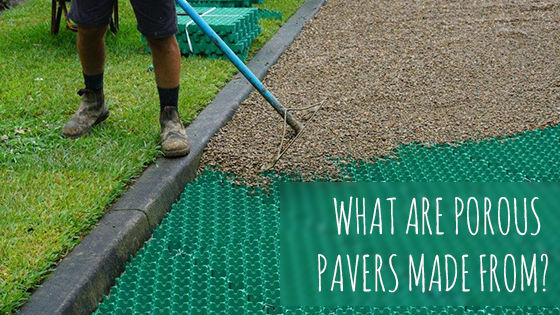What are porous pavers made from?
- landscapingsupplie0
- Feb 21, 2017
- 2 min read

At first glance the term ‘porous paver’ seems like an oxymoron. Pavers are supposed to be a strong, solid material, able to act as a durable surface for traffic to walk, run or roll over. To have a paver be porous is to defeat its purpose, right?
Porous pavers are the exception to the rule. They’re strong like a traditional paver. They act as a durable surface for traffic to use like a traditional paver. The only way that they differ from a traditional paver is the fact that they aren’t solid.
The very fact that they have holes can raise questions for those who haven’t ever dealt with porous pavers before. It can be easy to imagine that such a material would be brittle and break easily. But for something that’s full of holes, porous pavers are actually incredibly strong, and the secret to their strength lies in what they’re made from.
A quality porous paver needs to have the strength to withstand large weights rolling across it, without the need to add excessive weight or material that would inhibit its performance. It needs to be able to retain this strength while positioned within grass or covered in gravel, and can’t be affected by sub-zero temperatures or extreme heat. What’s more, it needs to be cost-effective.
The only material that ticks every one of these boxes is polypropylene/polyethylene plastic. And PP/PE plastic has another major advantage – it’s fully recyclable. That means that many porous pavers are made out of 100% recycled material, and can be recycled again at their end of their lifespan.
The best PP/PE pavers will be UV stabilised to ensure that they aren’t affected by the extreme sun of the Australian summer. Porous pavers suited to home use will be rated to around 150T/m2, ensuring they’ll be able to cope with the heaviest of vehicle traffic. It’s an impressive number for something that’s fully recycled and light enough to pick up by hand (weighing around 5kg per square metre).
A plastic paver with holes in it may not sound like the wisest choice for your driveway, but porous pavers are in many ways the ideal choice for many homeowners.


























Comments